Story
Shaping the future of coastal autonomy
25 June 2025
Today, national and international experts from science, policy and industry came together at Plymouth Marine Laboratory to help shape the future of coastal and inshore marine monitoring.
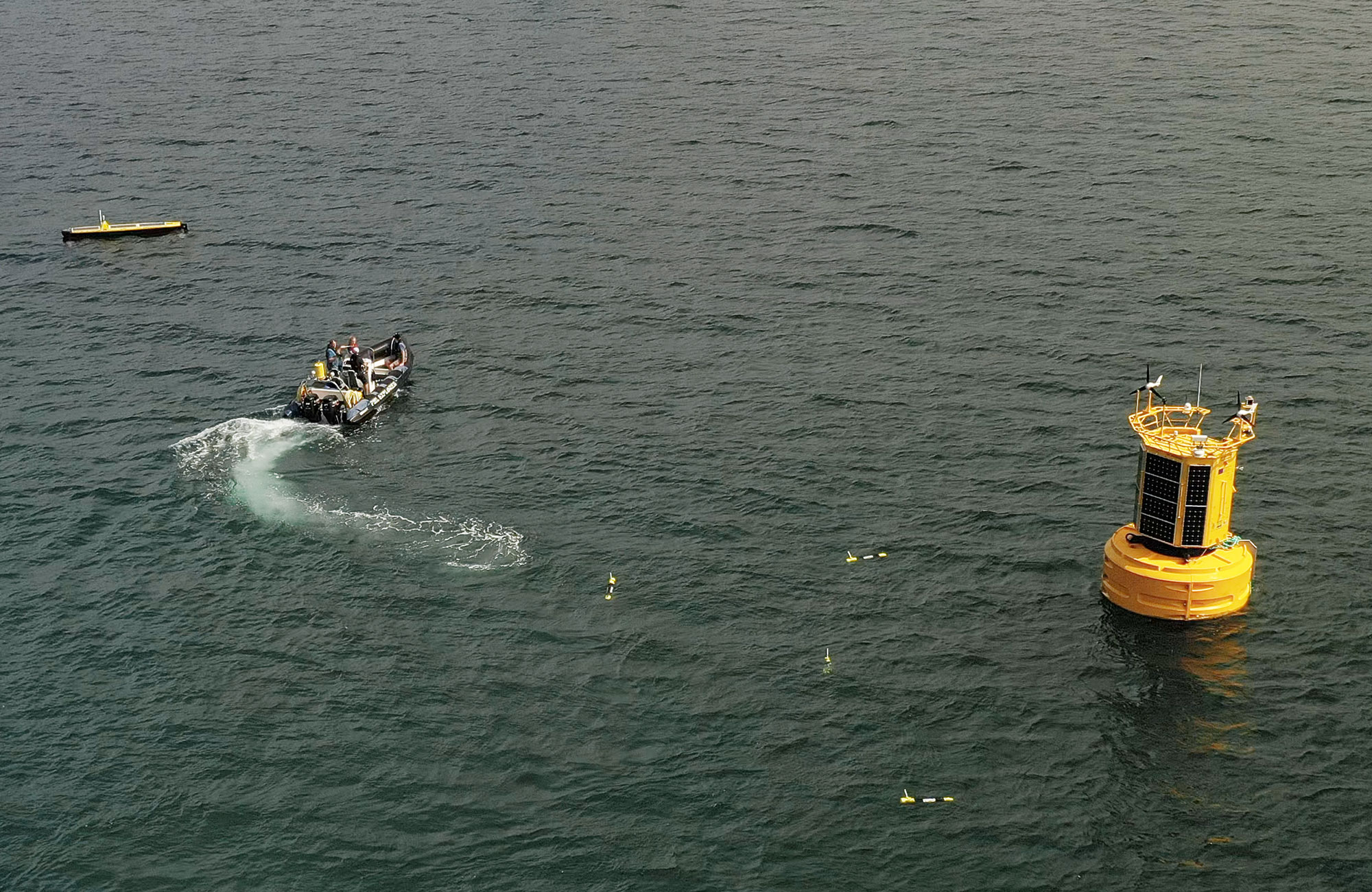
Convened by NERC’s Future Marine Research Infrastructure (FMRI) programme and hosted by the National Centre for Coastal Autonomy (NCCA), the two-day workshop has brought together a dynamic mix of researchers, government agencies, technologists and funders to explore the opportunities of autonomous and digital technologies to address the variety of challenges faced by the UK’s most vital marine spaces.
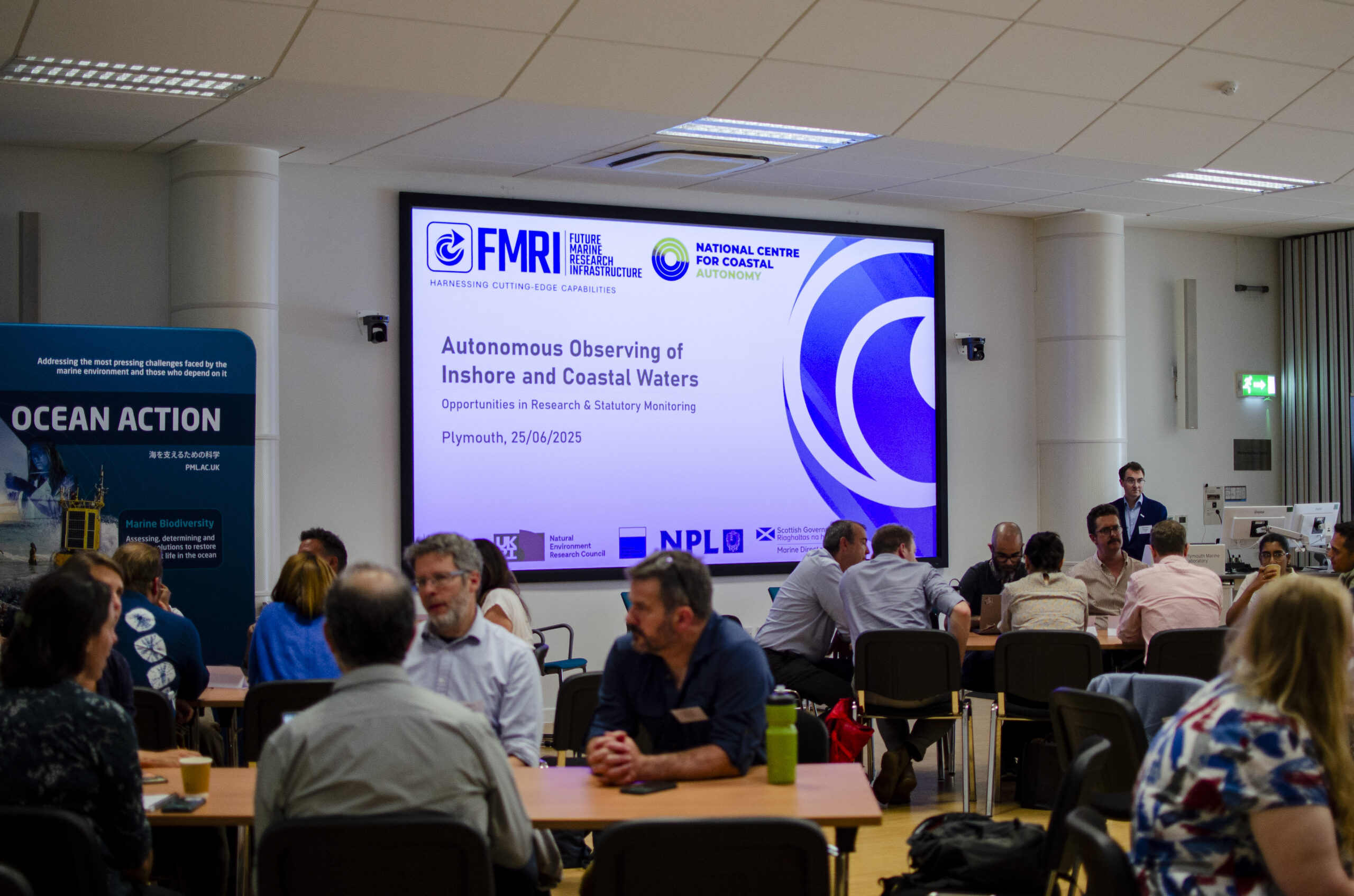
Image caption: the FMRI-Coastal Autonomy Workshop underway
Delivered in partnership with Defra, the National Physical Laboratory and the Scottish Government, the event lays the foundations for a UK roadmap for coastal autonomy, aligning innovation, infrastructure and investment across sectors.
Why coastal autonomy matters
Inshore, coastal and shelf sea regions are the lifeblood of ocean ecosystems – nurseries for ecologically and commercially important species, carbon stores that help regulate our climate, and vital spaces that support the Blue Economy, coastal communities and our cultural heritage.
As pressures on these dynamic regions intensify, the need for smarter, more sustainable, and environmentally responsible observing systems is clear. Marine autonomy offers massive potential for improved and more sustainable monitoring and management of these spaces. But the transition to new technologies and operational frameworks presents equally significant challenges in meeting the required levels of trust and assurance to meet our statutory monitoring requirements and the ocean challenges that marine research seeks to address.
A launchpad for transformation
The workshop opened with a welcome from Professor Matthew Palmer, Head of the Environmental Intelligence Group at PML and Director of the NCCA.
“We’re entering a new era where a transition to more effective and sustainable approaches to measuring and understanding our seas is no longer an option – but an essential requirement. Bringing together perspectives, expertise and experience from across science, policy and industry, this workshop provides a springboard for smarter, more responsive observing networks around our coasts,” said Prof Palmer.
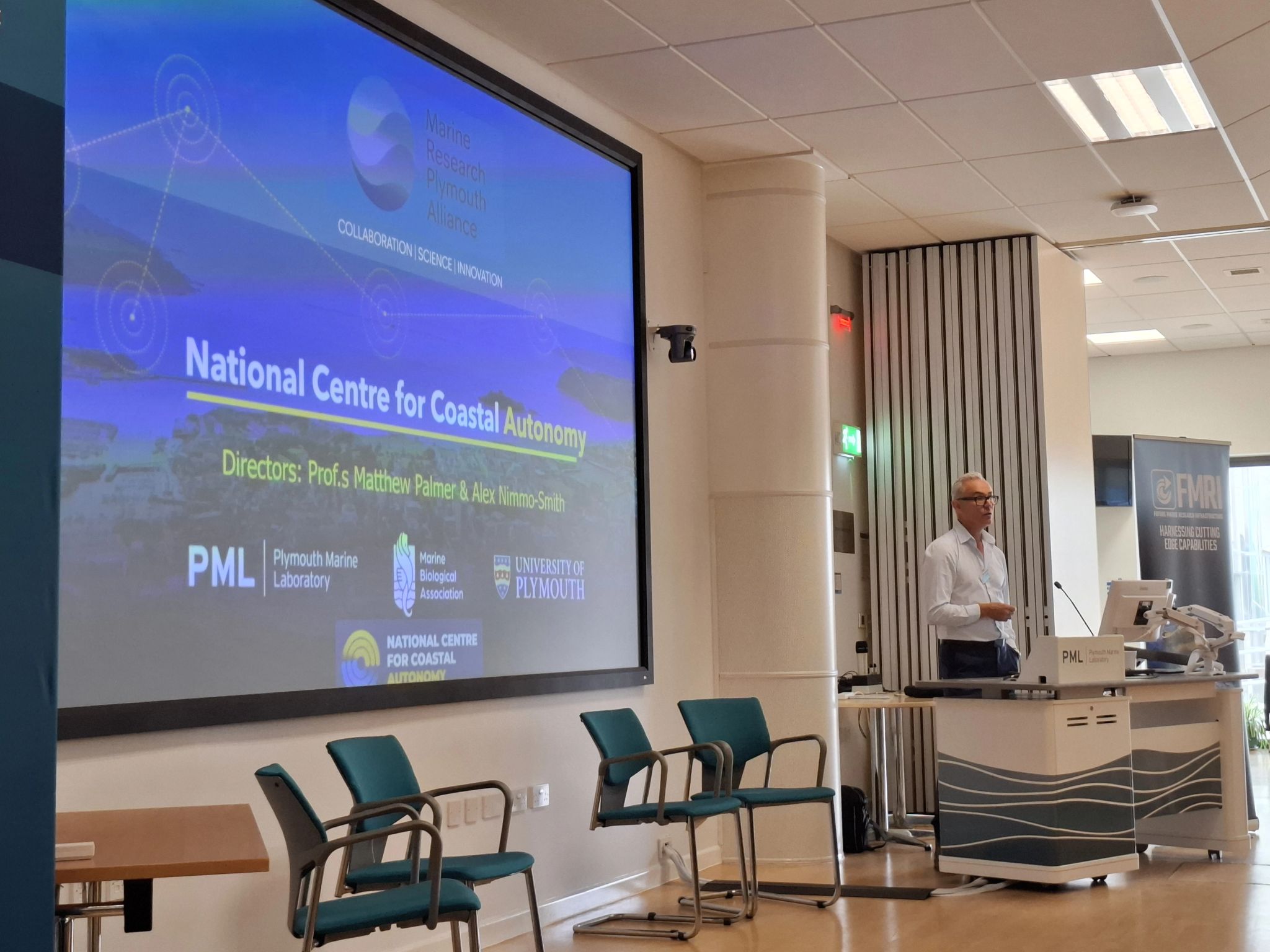
Image: Professor Matthew Palmer opened the workshop
He was joined by Professor Alex Nimmo-Smith (University of Plymouth and Co-Director of the NCCA), who shared insights on the technical challenges and opportunities facing the field.
Keynote speakers included: Prof Matthew Palmer (NCCA Director, Plymouth Marine Laboratory), Dr Iain Williams (NERC Director Strategic Partnerships), Prof Mark Inall (Chief Scientific Advisor Marine, Scottish Government Marine Directorate), Prof Kerry Howell (Plymouth Marine Laboratory), Prof Alex Nimmo-Smith (NCCA Co-Director, University of Plymouth), Jonathan Walker (Innovation Lead – Robotics and Sensors, Innovate UK), Andre Burgess (National Physical Laboratory).
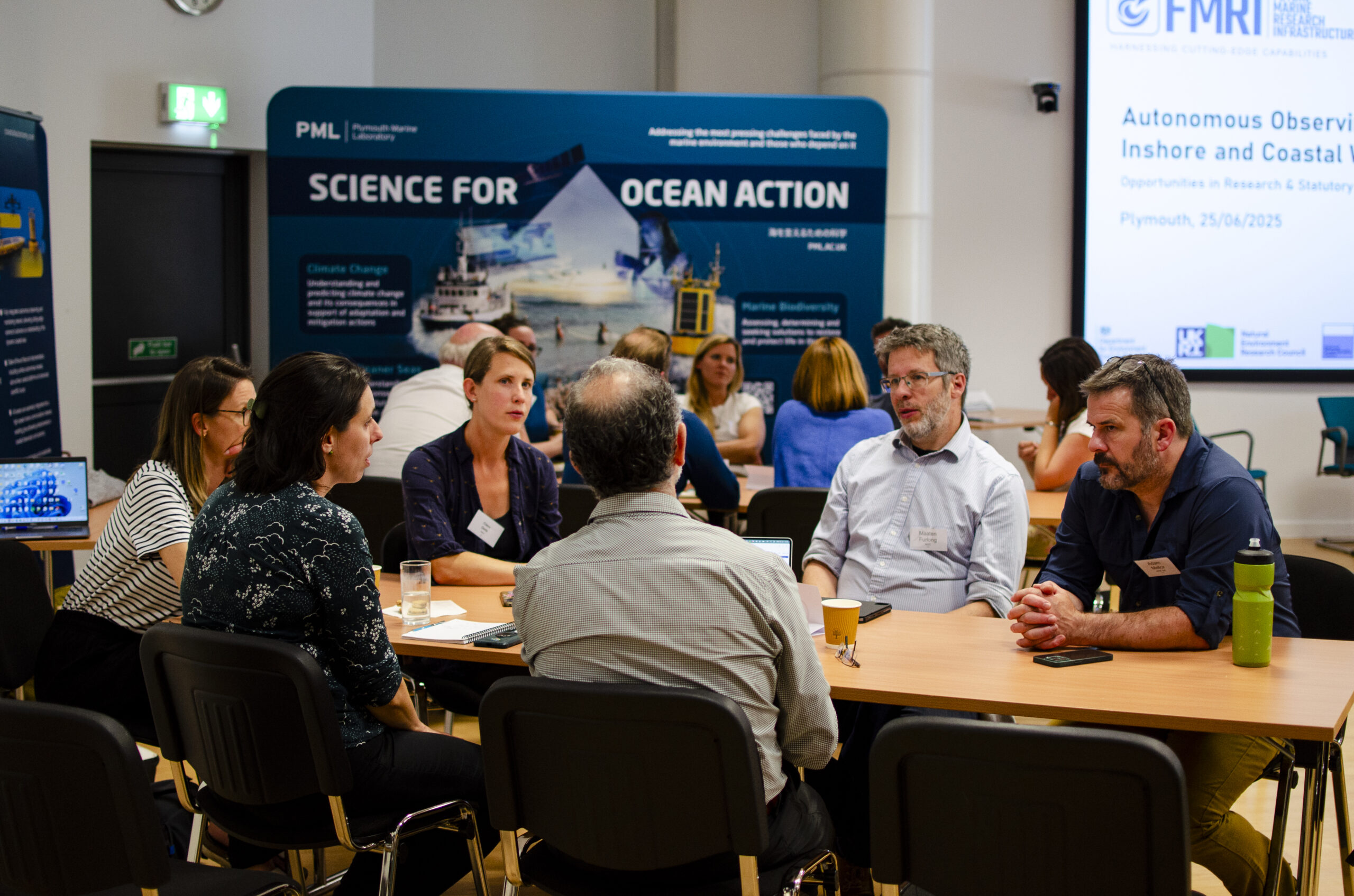
Image caption: the FMRI-Coastal Autonomy Workshop underway
Building a UK coastal autonomy roadmap
The main outcome of the workshop will be a co-development of a community roadmap for UK coastal autonomy – an action plan that will set shared priorities for infrastructure development, data integration, and investment. This roadmap will directly inform FMRI’s business case for future large-scale investment in national marine observing capabilities.
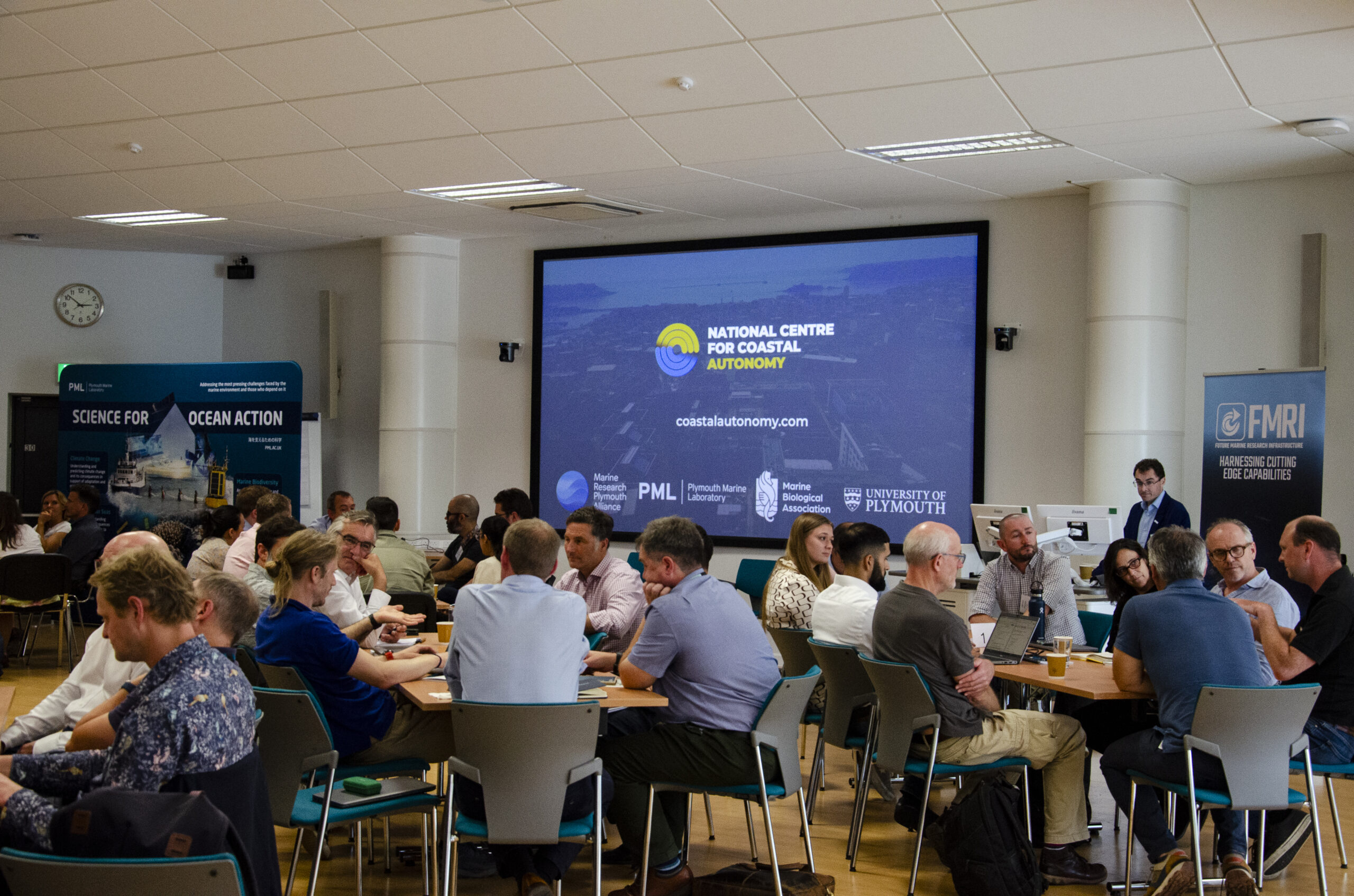
Image caption: the FMRI-Coastal Autonomy Workshop underway
“Coastal and inshore waters are where people and ocean processes meet most directly. Getting these observations right means better outcomes for marine ecosystems and the communities that depend on them,” said Professor Kerry Howell, Executive Board member of the NCCA and Professor of Deep-Sea Ecology at Plymouth Marine Laboratory and the University of Plymouth.
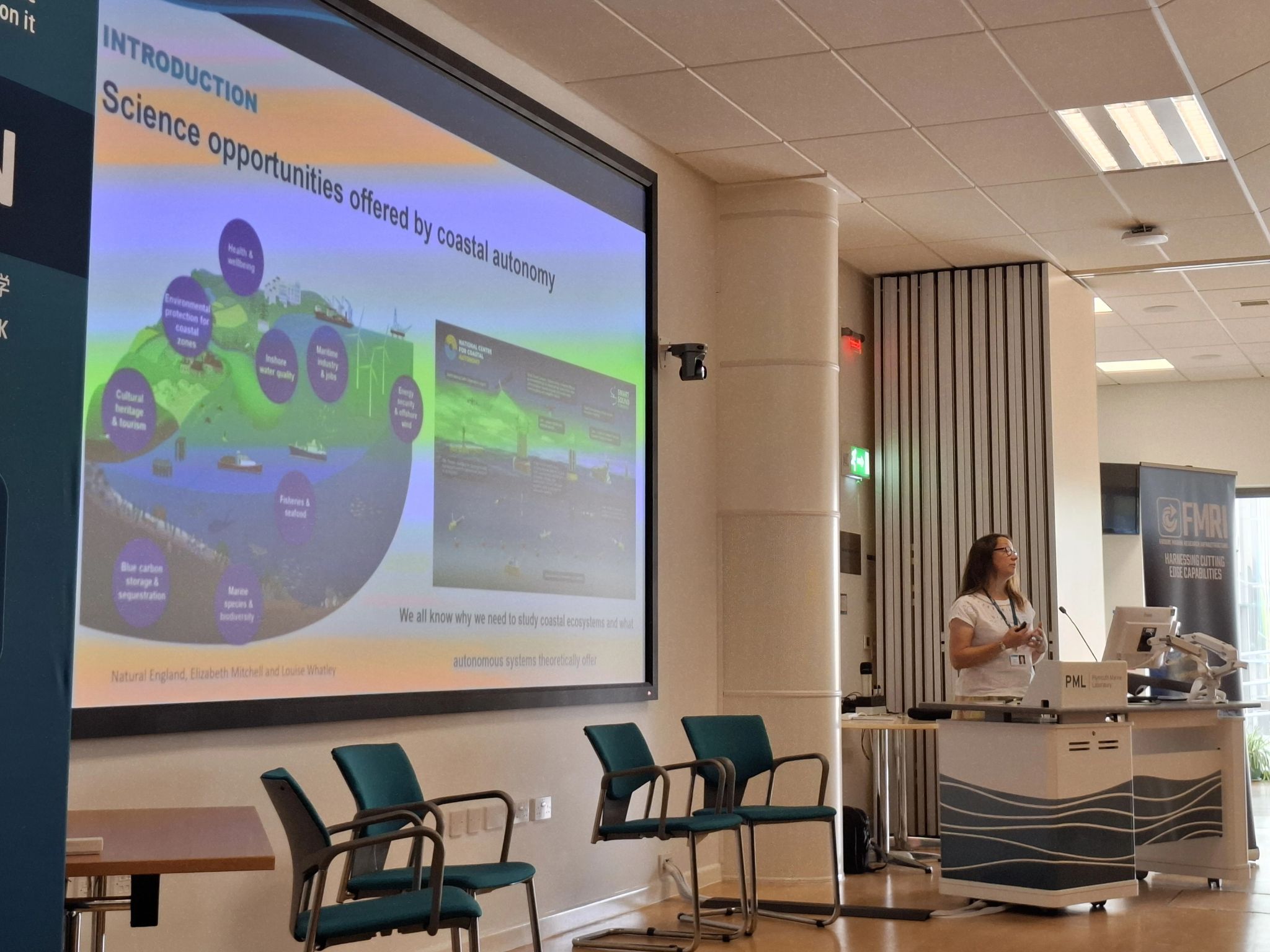
Image caption: Professor Kerry Howell presented: ‘Autonomous Survey and Monitoring of Benthic Ecosystems’.
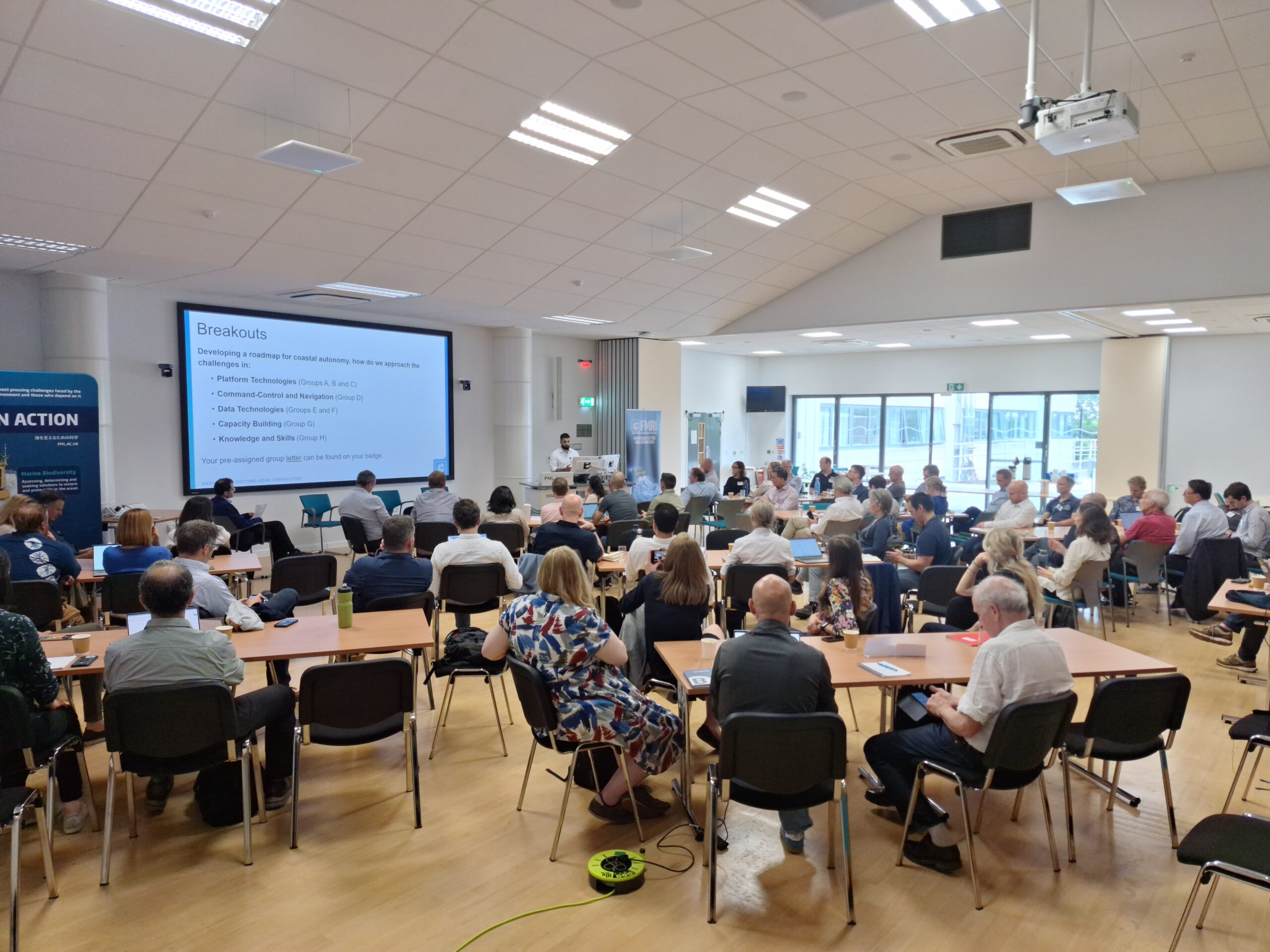
Image caption: Defra Innovation Lead, Deepak Marok feeding back workshop outputs.
What’s next?
The second day of the workshop provides a synthesis of the first day’s proceedings by an invited panel of experts, funders and regulators to draft the outline of the roadmap, which will then be further refined over the coming weeks. The full document will be shared with participants later this year.
As the UK positions itself at the forefront of global ocean innovation, this workshop marks an important step toward more connected, efficient, and sustainable marine science and monitoring infrastructure and recognition of the unique opportunities and challenges that coastal autonomy presents.
